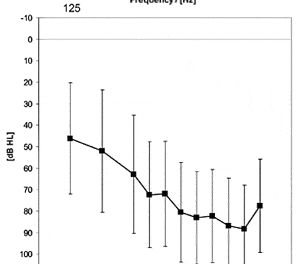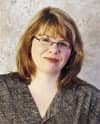
|
People who have a hearing loss often face challenges and obstacles that others don’t necessarily see or understand. Grant Williams, HAS, owner of Niceville Hearing Center in Niceville, Fla, knows all about challenges and obstacles—and overcoming them. Williams has taken his life experiences and applied his knowledge about people, as well as his technical skills in hearing healthcare, to help people from all walks of life.
And this isn’t Williams’ first successful hearing care business. He retired and sold out of his first practice in Metairie, La, just before Hurricane Katrina decimated that region. He retired to Destin, Fla, but Williams soon found himself drawn back into caring for those with hearing loss—and building another successful practice.
But none of it came easy.
Important lessons Learned
Born into a family of seven, Williams spent his early years in the mining town of Matewan, WVa, which is nestled in the Tug River Valley on the Kentucky border—not far from the place where the Hatfields and McCoys feuded. His family was very poor, and he ended up being the only child in his family who went to college.
“My family has served as motivation for my entire life,” says Williams. “My dad moved to Louisville to work, and by the time I finished high school, I was working two jobs there, as well. [Football Hall of Famer] Paul Hornung taught me how to shoot hoops at the YMCA in Louisville; at that time, I don’t think he knew how great an athlete he was going to be—to me, he was just a big guy shooting baskets.” Like Hornung, Williams’ life also began to take an unexpected trajectory that was entwined with sports.
He became a gymnast for the state of Kentucky in the Amateur Athletic Union (AAU), which led him to become the all-around Kentucky-Indiana Gymnastics Federation (KIGF) Honor Leader and win a trip to the YMCA Blue Ridge Assembly in Black Mountain, NC. Once there, he worked as a gymnastics trainer and met Patrick Yeager, an avid promoter of the sport who had been involved as a coach of the 1960 Women’s Olympic team.
“One day, Mr Yeager asked me, ‘Young man, where are you going to college?’ I answered that I didn’t speak that language; frankly, I was overjoyed that I’d graduated from high school in the summer of 1964 after taking algebra three times,” says Williams with a wry smile. “So, after the camp, I ended up on another Greyhound bus to Statesboro, Ga, where Georgia Southern University is today [it was a college then] and where he had arranged a scholarship for me.” When Yeager left the college shortly afterward, the gymnastics program was defunded (along with Williams’ scholarship), and Williams wound up at Southeastern University in Hammond, La. There he coached students in the summertime and met his wife, a belle from New Orleans, whom he married 3 years later.
“To be honest, my motivation back then was to survive, find a niche, and then once I had the niche, my motivation became fear of loss. My Uncle Andy—who was a mentor to me, and had been a war veteran and a prominent training psychoanalyst in New Orleans—had an expression that I’ve always remembered: Success is not measured by where you are, but from where you started.”

|
Understanding and Motivating people
That philosophy propelled Williams and gave him a unique perspective on those he would soon serve. In the late 1980s, Williams began working as a patient recruiter for a large hearing aid dispensing network in New Orleans. He was handed the task of taking raw leads from newspaper ads and converting them into solid qualified leads.
“The economy was down, and frankly it was a cash-commission-only job that I thought might pose some problems at first,” says Williams. “But I quickly found that I didn’t mind the arrangement at all; I realized I had a genuine knack for relating to people with hearing loss. In fact, my success became something of a problem when I started making more money than my boss. He was a very good trainer who had himself been trained by [Miracle Ear founder] Ken Dahlberg, Sr. They would run ads in the newspapers to generate the leads. I didn’t really find anything difficult about getting people to schedule appointments; all you had to do was dress nice, be polite, and talk with folks who had already expressed an interest in buying a hearing aid.
“One night,” Williams continues, “I was working late and I decided to check out that box with all the dials on it that makes a certain sound whenever you push a button [an audiometer for testing hearing]. One of the audiologists saw me and—quite literally, as one might scold your kid for playing with your proprietary work computer—he told me to get away from this delicate piece of equipment that I had no business touching. There was steam coming out of his nose. I was crushed.
“The incident definitely had an effect on me, and I started researching the field and re-evaluating my place in it. I soon began to realize that hearing care and hearing aid fitting was something that I could excel at, since I was already doing what amounted to the most difficult part: counseling and interacting well with our clients, advising them about all their options, and motivating them to take the next step in doing something about their hearing loss. I also realized that the reason I had been so successful at motivating people—while these professionals in our office were not—was that I listened carefully to the clients. They thought that, as professionals, they had all the answers, and they effected a certain attitude….
“That certainly wasn’t what I was about. I come from a pretty humble background. I was taught that life is fairly simple: You should eat right, sleep right, and do right, and if you take care of yourself and others, you should be okay. That’s basically what I’ve done all my life.”
Williams introduced himself to John Dibenedetto, a now-retired hearing care professional who held one of Louisiana’s first hearing aid dispensing licenses and had served on the state’s licensing board. “Mr John was an absolutely pivotal person in my career: a smart, older gentleman, and a Beltone franchisee who had kids going to college and was ultimately looking to transition his practice.” Initially, Williams says that he established a kind of “office within an office” in Metairie, La, setting appointments for Dibenedetto and his colleagues. Eventually, Williams also started seeing those patients who couldn’t get an appointment in a timely manner or those who preferred a house call after work due to their busy schedules.
Williams discovered that he was very good at the science of fitting hearing aids, as well, and he ran a thriving business for several years. He retired to the Destin, Fla, area after selling his dispensing offices in Louisiana prior to Hurricanes Katrina and Rita in 2005.
A commitment to People with hearing loss
After a brief stint in retirement, Williams established his new practice in Niceville, which is located across the bay from his home in Destin, with the idea that he’d devote 3 days a week to new customers, then take care of follow-up visits on Mondays and Fridays. However, with a large ex-military population and neighboring Eglin Air Force Base (one of the largest in the country), he quickly started helping out veterans as well as those returning from deployment and needing hearing help. “We take care of many returning vets and military service members—most of whom get their hearing aids from the VA—at no charge. Many prefer my services to the 2+ hour trip to Pensacola or Mobile.”
Williams credits much of the success of the practice to an “amazing staff,” which includes the talents of Richard C. Rebeck, HAS, BC-HIS, who has a PhD and extensive knowledge in the medical field. “He’s a walking talking encyclopedia,” says Williams. Also on staff are Patient Care Coordinators Laura Nan Wheat and Jessica St Andre, as well as Wrea Faye Paris, who is the bookkeeper. However, as a person with single-sided deafness (SSD) who now wears wireless BICROS Phonak hearing aids, Paris also serves as the practice’s unofficial patient ambassador. “Largely thanks to her,” says Williams, “we now have as customers numerous prominent business leaders, including the mayor who is wearing a set of acrylic jet-black Phonak Audeo Smart IX aids to match his hair. He uses two remotes and Bluetooth streaming. I can’t tell you how many word-of-mouth referrals we’ve had—but I still keep my Mondays and Fridays free for donating time and follow-ups.”
The practice’s services recently prompted Niceville Mayor Randall Wise to write, “All my experiences at the Niceville Hearing Center have been life changing. Niceville Hearing Center is a beautifully maintained medical suite located in the Twin Cities Medical Plaza and offers a clean, caring environment where everyone with a hearing loss will receive professional patient care by a highly trained staff….”
More recently, Williams became a graduate in the program of the American Conference on Audioprosthology (ACA), and Niceville Hearing Center now distributes and services Phonak Lyric hearing aids. He says he is starting to entertain the idea of “retiring again” and/or bringing on a partner who will take the business into the future.
In summing up his practice’s philosophy, Williams says, “We take the time to know our patients and their goals. We understand that hearing better is more than the purchase of hearing aids. There is emotion involved as well…We treat our patients; we don’t just service their hearing aids. You’ll begin to notice that your association with our practice is about you and not about your hearing aids. We are friendly, down to earth, and very good listeners. Having been in the hearing healthcare business for over 20 years, we understand the mix of attitudes and know that, when seeking treatment for one’s hearing, people want information in a ‘straight talk’ way. We take the time to review your test results, to get to know your personal preferences, introduce and demonstrate the newest technologies, and will respect the opportunity to measure your preferred results and expected successes.”
Just what you’d expect from someone with Grant Williams’ background.
S. Grant Williams, HAS
Niceville Hearing Center
1001 W College Boulevard, Bldg 2
Niceville, FL 32578-1049
(850) 678-EARS
www.NicevilleHearingCenter.com





